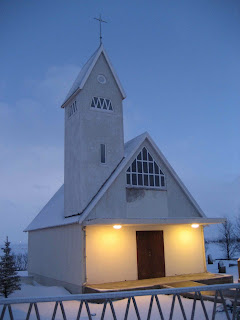
Chess, like the IQ test, is a highly problematic yet mysteriously attractive measure of intelligence. It's well known that with training, you can defeat opponents who would otherwise best you. Yet nothing beats its cerebral allure; the word 'chess' can barely be uttered without 'genius' nearby. For me, sitting across the board from a skilled chess player is terrifying, and it has nothing to do with my sense of impending doom. It's the feeling of being predictable that scares me, the awareness that originality is impossible, and that to my opponent––who can see ten steps ahead––I'm no freer or smarter than a train on a track. 'Why does my opponent get to be above this depressing reality?' I would think angrily, 'Why should I sit here while he plays God with me?'
To many, Bobby Fischer demonstrated the limits of 'chess-smarts'. In the last fifteen years of his life he was increasingly called crazy, though I've found no evidence that he was actually insane. True, he denied the holocaust and regularly made anti-Semitic rants––famously in a 1999 interview on Hungarian radio (to complicate the matter, both his biological parents were probably Jewish). True, he may have had his fillings removed because he feared the CIA had tampered with them. True, he denied treatment at the very end of his struggle with kidney disease (though he may have chosen to do this only when doctors deemed his condition terminal––not such a crazy thing). When Fischer arrived in Iceland in 2005, Charles Krauthammer wrote a piece for Time Magazine on the connection between chess and insanity. A trained psychiatrist, chess enthusiast, and currently a conservative-leaning op-ed columnist for the Washington Post, Krauthammer speculated that while chess doesn't make you crazy (he holds up Vladimir Nabokov and Natan Sharansky as examples of 'sane' chess wizards, which might cause a snicker among those who've read Lolita or considered the consequences of neo-conservatism. Garry Kasparov is a third, and its Russian government policy to snicker at him), it might encourage paranoid and delusional thoughts as a monomaniacal and self-referential (that is to say a world completely separate from the real one) game. It isn't hard to imagine furthermore, how someone locked in reality filled with, to quote Krauthammer, "adversar[ies] who, by whatever means of deception and disguise, [are] entirely, relentlessly, unfailingly dedicated to your destruction" might take a piece of work home with him. Then again, anybody who locks himself it such a place, willingly or not, is probably asking for it.
The reason I'm writing about all this is because I visited Bobby Fischer's grave in Hraungerdi, Iceland (30 miles east of Reykjavic) exactly one week after he was buried in front yard of the Laugardælir Church (see photo). The town itself in a ring of modest houses and a cattle pen nestled in the shadow of one large cliff that runs east west. Looking south, you can see the ocean as well as the arch of the little highway that runs beside it around the entire island. Fischer's grave had already been covered in the intervening week. Lacking a proper headstone it was barely noticeable––just a small mound with fern stems and other miscellaneous objects poking out of the snow. In the photographs I took there are footprints surrounding it, but now I suspect they're my own.
How Fischer ended up in Iceland stems from a chess match he played in Yugoslavia in 1992. The story goes that he was lured out of retirement to play multi-million dollar rematch against Boris Spassky, whom he defeated in 1972 at the age of twenty-nine to become the eleventh World Chess Champion ending thirty years of Soviet dominance. The problem was that Fischer was a US citizen, and the US government had recently enacted sanctions on travel to Milosevic's Yugoslavia. Fischer knew this and went anyways. Questionable move. Unable to return home he moved to the Philippines where in 2000 he fathered the daughter who may end up receiving his entire estimated fortune of more than £1.5 million (happy eighth birthday sweetie!). In 2003 Fischer's US passport was revoked after he again went on record to praise the 9/11 hijackers. In 2004 he was detained in Japan and spent eight months fighting extradition until Fischer's friends in Iceland, the site of the '72 match, convinced the Icelandic government to grant him asylum.
My Icelandic guide didn't have much to say about Bobby Fischer. He repeated the old fodder about how Fischer was a peculiar old man with a big beard who used to sit in a seat reserved for him in his favorite bookstore and read all day. He said, with pride, that Icelanders never bothered him. When I asked him why Iceland had given asylum to a man who had willfully broken US law, he said roughly, 'I know what he did was illegal. It's hard to explain. We thought your punishment was too harsh.'
Links:
Krauthammer article:
http://www.time.com/time/columnist/krauthammer/article/0,9565,1054411,00.html
Interesting article by Dick Cavett with a video clip of a interview Cavett did with Fischer in the summer of 1971. The chess player, in his youthful good-naturedness, bears little resemblance to the man we are told he became:
http://cavett.blogs.nytimes.com/2008/02/08/was-it-only-a-game/

